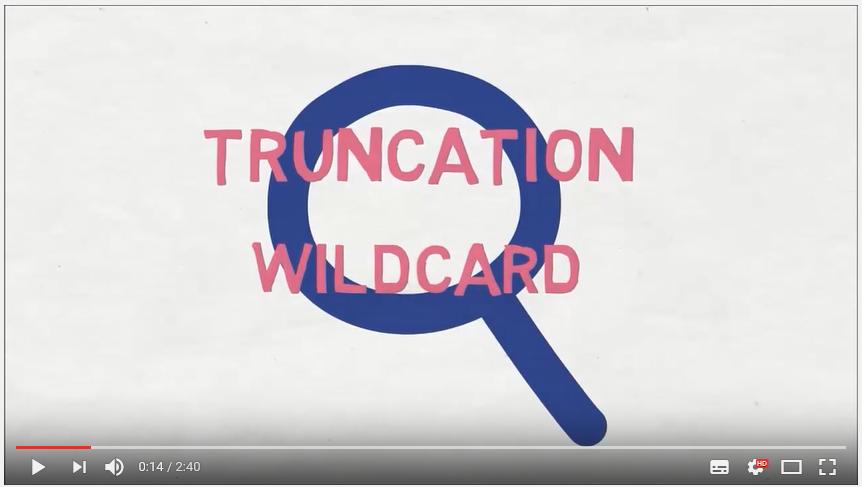Truncation and Wildcards
Truncating a search term
Truncation, also called stemming, is a technique that broadens your search to include various word endings and spellings.
- To use truncation, enter the root of a word and put the truncation symbol at the end.
- The most common truncation symbol is * (asterisk). The database will return results that include any ending of that root word.
For example: child* gives you child, children, childhood etc.
OBS! Many databases can automatically recall some inflected forms of words, typically singulars / plurals and sometimes conjugations too. Also American-British spelling variations are often taken care of by the system.
For example: color might retrieve also color, colors, colour, colours, coloring, colouring
Still, if a term is not a “common” word, plural might not be regocnised, for instance peatland, peatlands. Observe the result list, if it includes the plurals or not, and use truncation if needed.
Usually using a phrase search will eliminate all automatic stemming.
Wild cards
Similar to truncation, wildcards substitute a symbol for one (or zero) letter of a word.
- Wildcard is useful if a word is spelled in different ways, but still has the same meaning.
- Depending on a database, a wildcard may be ?, %, # etc.
For example: organi?ation, colo#r
OBS! Truncation / wildcard symbols vary by database. Check the help screens to find out which symbols are used.
Watch the video “Truncation & wildcards” (2:40) by University of Essex Library (the link in the picture takes you to Youtube):
(8/2022 LP)
